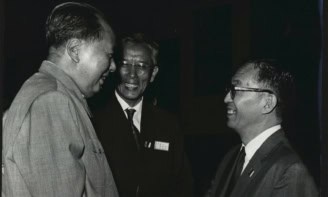By Michael Banks
Yep, it’s that time of year again, when predictions for the Nobel prize get bandied about and notable physicists will be making sure that their mobile phones are fully charged in anticipation of a call from Stockholm.
The 2013 Nobel Prize for Physics will be announced on Tuesday 8 October at 11:45 CET. Work on the Higgs boson, which was discovered last year at CERN’s Large Hadron Collider, is the surely the hot favourite to win this year, but the Nobel Foundation sometimes springs surprises and 2013 may be no different.
So who do you think will win this year’s prize?
As usual, the information service provider Thomson Reuters has come out with its three picks. Top of that list is Francois Englert and Peter Higgs for their work on the Brout–Englert–Higgs boson particle. Geoffrey Marcy, Michael Mayor and Dider Queloz are also in the mix for their discoveries of extrasolar planets, while Hideo Hosono is tipped for his discovery of iron-based superconductors. But Thomson Rueters hasn’t got the greatest track record for the physics prize, it’s picked some winners but they’ve only won in subsequent years.
Here at Physics World HQ, we’re also putting our money on the Higgs (although who exactly should win the prize is another question). But there are many other options for the Nobel Committee to contemplate, including Alain Aspect, Anton Zeilinger and John Clauser for work on Bell’s inequality – experiments that established quantum entanglement.
Another frontrunner is work on neutrino oscillations, which would put Art McDonald of SNOLAB in the running, along with Atsuto Suzuki from Japan’s SuperKamiokande experiment.
Then there is the Aharonov–Bohm effect and the Berry phase – which means that the prize would be shared by Yakir Aharonov of the Chapman University in California and Bristol University’s Michael Berry. (David Bohm died in 1992 so is ineligible for the prize.) Other researchers who could be booking their tickets to Stockholm are John Pendry of Imperial College London and Duke University’s David Smith, for their prediction and discovery of negative refraction, possibly alongside Ulf Leonhardt from the Weizmann Institute of Science.
And last, but not least, a senior figure in the physics community tells us that Shuji Nakamura at the University of California, Santa Barbara is in with a definite shout for the invention of white and blue LEDs – a major breakthrough in lighting technology.
We will just have to wait and see, but if that has whetted your appetite for more things Nobel, then fear not, as Nobel Media has just released 140 videos of interviews with Nobel laureates about their work and how the prize has changed their lives (see an example above). You can watch all the videos here.



